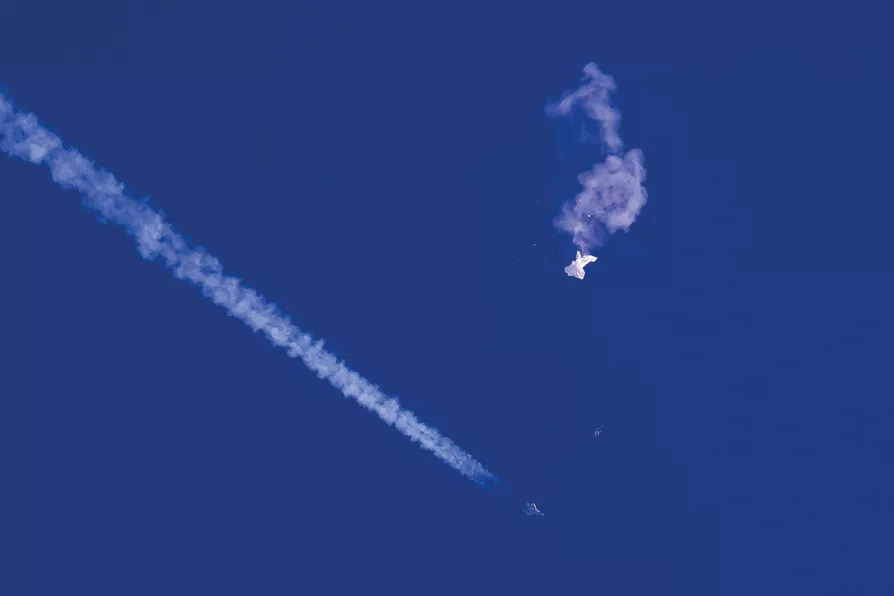This weekend, the NEU holds a special conference to debate changing its approach to organising teaching assistants, which a 2017 TUC agreement forbids. General secretary DANIEL KEBEDE outlines the choices before delegates

 HOT AIR: The US has created an international incident out of a Chineses weather balloon blown off course, which it shot down this week
HOT AIR: The US has created an international incident out of a Chineses weather balloon blown off course, which it shot down this week
Whilst mainstream Western media has been focused on hyping up the alleged ‘threat’ posed by a solitary Chinese balloon which was blown off course into US airspace last week, officials in Washington have been concentrating on working with key US allies in the Pacific region to escalate the military encirclement of China in preparation for a potential hot war in Asia – the consequences of which would be truly devastating for humanity.
The furore over the balloon has sparked a diplomatic crisis leading to the cancellation of high level meetings scheduled to take place in Beijing between US Secretary of State Antony Blinken and Chinese Foreign Minister Qin Gang — meetings which could have been an opportunity for the US and China to explore ways of co-operating to tackle the seismic challenges facing humanity.
Instead of embarking on a policy of international co-operation to solve shared problems such as the deepening climate crisis and the prospect of a global economic downturn in 2023, the entire US political establishment is uniting around an extremely aggressive policy aimed at stopping the rise of China.

In a speech to the 12th Xiangshan Forum in Beijing, SEVIM DAGDELEN warns of a growing historical revisionism to whitewash Germany and Japan’s role in WWII as part of a return to a cold war strategy from the West — but multipolarity will win out

From 35,000 troops in Talisman Sabre war games to HMS Spey provocations in the Taiwan Strait, Labour continues Tory militarisation — all while claiming to uphold ‘one China’ diplomatic agreements from 1972, reports KENNY COYLE

The US’s bid for regime change in the Islamic Republic has become more urgent as it seeks to encircle and contain a resurgent China, writes CARLOS MARTINEZ











